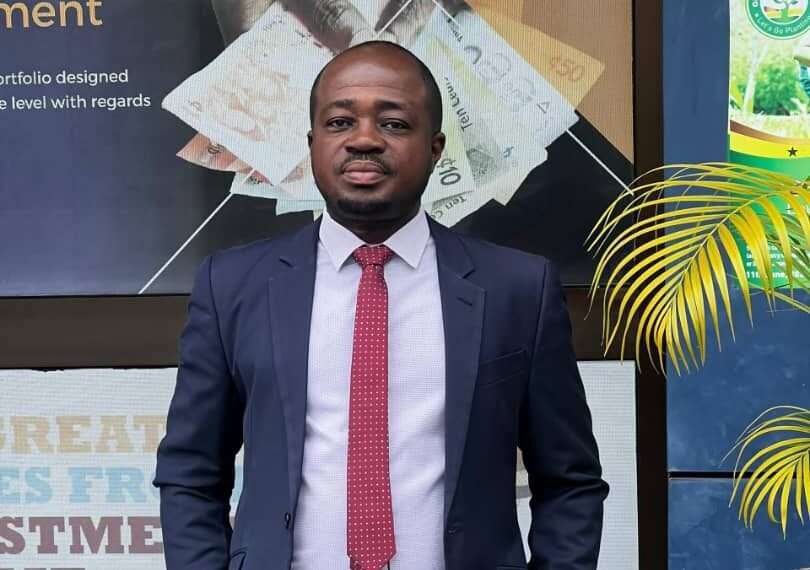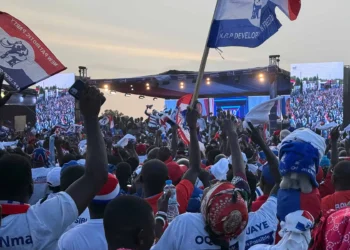Trading on Ghana’s secondary bond market witnessed a noticeable cooldown last week, with volumes plunging by 23.15% to GH¢1.18 billion from the previous GH¢1.53 billion, a development an expert says is tied to the Bank of Ghana’s (BoG) latest monetary instrument—a 273-day bill.
In an exclusive interview with The Vaultz News, Mr. Isaac Kwesi Mensah, a seasoned market analyst and corporate finance expert at SIC-FSL, provided a deep dive into the subdued market activity and institutional behavior shifting focus away from secondary bonds.
“What we’re seeing is a classic case of reallocation. Institutional investors are temporarily retreating from the secondary bond market, choosing instead to pursue short-term, central bank-backed instruments that offer competitive risk-adjusted returns.”
Mr. Isaac Kwesi Mensah
A Muted Outlook for the Week
According to Mr. Mensah, the outlook for trading activity in the week ahead remains “relatively muted” as large market participants recalibrate their portfolios in response to the BoG’s newly issued 273-day bill.
“This bill is essentially siphoning liquidity from the bond market,” he said. “It presents a relatively attractive yield with lower credit and interest rate risks, which is quite appealing given the ongoing macroeconomic uncertainties.”
The Bank of Ghana introduced the 273-day bill as part of its strategy to mop up excess liquidity and tighten monetary conditions, a move interpreted by many analysts as another attempt to stabilize inflation and support the cedi.
“From a liquidity management perspective, it’s a smart tool,” Mr. Mensah acknowledged. “But from a trading volume standpoint in the bond market, it’s a diversion.”
Bond Market Snapshot: Focus on 2027–2038 Maturities
The previous week’s bond trading was dominated by mid-to-long-term securities. Bonds maturing between 2027 and 2030 claimed the lion’s share of market activity at 57%, with an average Yield-To-Maturity (YTM) of 21.47%, up by 0.5 percentage points.
Meanwhile, the 2031 to 2038 papers contributed 43% of the market volume, with an average YTM of 21.62%.
“The upward movement in yields, albeit marginal, reflects a certain risk premium investors are placing on duration amid shifting interest rate expectations. Investors are watching fiscal signals and monetary direction closely, and many prefer to stay liquid or tilt toward shorter durations when uncertainty looms.”
Mr. Isaac Kwesi Mensah
He emphasized that the yield differentials across maturities are becoming more important than ever, especially as the market anticipates new macroeconomic data and fiscal updates from the Ministry of Finance.
Mr. Mensah pointed out that institutional investors, particularly banks and asset managers, are adopting a “cautiously opportunistic” stance. While the bond market remains attractive in the long term, many players are currently hedging liquidity risks by locking into BoG’s short-term bills.
“This isn’t a vote of no confidence in the bond market,” he clarified. “It’s simply a temporary repositioning to manage portfolio liquidity while remaining responsive to central bank signals.”
He added that fund managers are under pressure to balance performance and safety, especially in the face of potentially volatile inflation numbers and upcoming domestic debt issuance plans.
Broader Implications for the Market
The muted trading activity also signals a wait-and-see approach that could extend into the next few weeks unless there are new catalysts, such as favorable inflation readings or updated fiscal metrics.
“We may see an uptick in bond activity once there’s greater clarity on the 2025 mid-year budget review,” Mr. Mensah suggested. “Until then, the market will remain directionally cautious, especially on the buy-side.”
He believes this lull provides an opportunity for retail investors and smaller institutions to re-enter the market at attractive price levels, given the upward adjustment in yields.
To restore momentum in the secondary bond market, Mr. Mensah stressed the need for policy clarity, particularly around debt sustainability, interest rates, and liquidity management.
“Confidence is currency. If investors feel assured that the fiscal and monetary authorities are working in tandem to maintain stability, volumes will rebound—no question.”
Mr. Isaac Kwesi Mensah
In the interim, though, the market appears comfortable pressing the pause button.
“Muted doesn’t mean frozen,” Mr. Mensah concluded. “It just means we’re in a phase of recalibration—and that’s not necessarily a bad thing.”
As investors continue to assess yields, policy direction, and liquidity needs, Ghana’s bond market will likely stay quiet but not dormant. And for now, all eyes remain on the Bank of Ghana’s next move.
READ ALSO: Stanchart Declares GH₵1.6704 Final Dividend Per Share for 2024 Financial Year



















